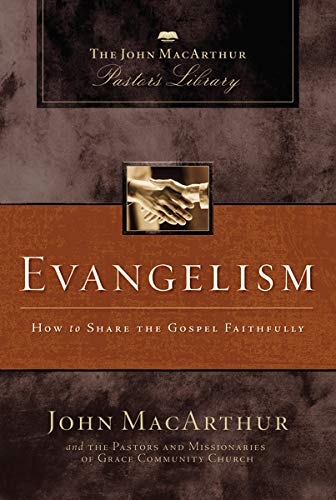 Last week, I spoke about our need to improve our everyday, relaxed, natural conversation, especially with other believers. And this was in the service of grounding our subjective experience of fellowship in the objective reality of fellowship (the Gospel). I concluded that one of the best ways to attain that goal is by speaking to one another about the things of Christ.
Last week, I spoke about our need to improve our everyday, relaxed, natural conversation, especially with other believers. And this was in the service of grounding our subjective experience of fellowship in the objective reality of fellowship (the Gospel). I concluded that one of the best ways to attain that goal is by speaking to one another about the things of Christ.
A second way that we can work towards having true fellowship with one another that is honoring before God is the subject of today’s post. I really believe this to be an important, essential, and even foundational element to our relationships with each other as we live the Christian life together. If Christians don’t have this element, we do little more than play church and fool ourselves into thinking we have true fellowship when we have little more than a social club.
Here’s a little fill-in-the-blank test to get us started:
“And concerning you, my brethren, I myself also am convinced that you yourselves are full of goodness, filled with all knowledge and able also to ________ one another.”
What do you think goes in the blank? What do you think many professing Christians think goes in the blank? Would you guess things like: “love,” “encourage,” “affirm,” “serve,” “teach,” and “agree with”?
The text is Romans 15:14, and the word that fills in the blank correctly is admonish.
This is that second component that is absolutely foundational to living the Christian life together. We could call the first component that we talked about last Friday conversation. And we can call this second component confrontation. (We could also call it admonition, rebuke, or reproof, but they don’t start with con- like conversation and confrontation. 🙂 )
Paul praises the Roman church for being competent to admonish one another. And Paul himself exemplified this in his own ministry. Indeed, even in this text we see his positive evaluation of the believer who, in goodness and according to knowledge, confronts his brother regarding sin.
But I have written very boldly to you on some points so as to remind you again, because of the grace that was given me from God, to be a minister of Christ Jesus to the Gentiles, ministering as a priest the gospel of God, so that my offering of the Gentiles may become acceptable, sanctified by the Holy Spirit.
Taking that piece by piece, we see that Paul regards confrontation, admonition, or rebuke (“I have written very boldly”) as a mark of grace (“because of the grace that was given me from God”). The grace he speaks of includes his Apostleship (“to be a minister of Christ Jesus to the Gentiles”), and so considers this to be a mark of maturity.  By using the language of the Old Testament priesthood (“ministering as a priest the gospel of God”), he also shows that he considers it to be a mark of worshipful service. And he sees this ministry of confrontation, admonition, and rebuke as serving the purpose of advancing believers in holiness (“so that my offering of the Gentiles may become acceptable, sanctified by the Holy Spirit”).
By using the language of the Old Testament priesthood (“ministering as a priest the gospel of God”), he also shows that he considers it to be a mark of worshipful service. And he sees this ministry of confrontation, admonition, and rebuke as serving the purpose of advancing believers in holiness (“so that my offering of the Gentiles may become acceptable, sanctified by the Holy Spirit”).
And we know that Paul didn’t just talk about it. He lived it out in His own ministry. In Acts chapter 20, Paul is giving his farewell address to the Ephesian elders, among whom he labored for three years, and whom he loved very dearly. In it, he says:
- v. 20 – You yourselves know…how I did not shrink from declaring to you anything that was profitable, and teaching you publicly and from house to house.
- v. 26-27 – Therefore, I testify to you this day that I am innocent of the blood of all men. For I did not shrink from declaring to you the whole purpose of God.
- v. 31 – …remembering that night and day for a period of three years I did not cease to admonish each one with tears.
This is pretty striking. Paul continues to lump in the same category the idea of speaking boldly, admonishing, and declaring even hard things to his fellow believers, with the idea of being innocent of men’s blood, and with profiting them in love. When the situation called for Paul to talk straight, even in what would seem to be a severe manner, he didn’t let a man-made, man-centered, vague, ambiguous fabrication that people call “love” hinder him from actually benefiting his brethren by admonishing them. In fact, it was true love that drove him to do so.
And you might think that Paul wouldn’t be very liked among this group. I mean, night and day for three years? You’d think they’d have gotten tired of him. But the result of Paul’s tireless ministry of rebuke and admonition among them was true, loving fellowship. We read in Acts 20:36-38:
When he had said these things, he knelt down and prayed with them all. And they began to weep aloud and embraced Paul, and repeatedly kissed him, grieving especially over the word which he had spoken, that they would not see his face again And they were accompanying him to the ship.
Such affection is heartwarming. These brothers knew that Paul was benefiting them by presenting Christ to them, even and especially in his admonitions, rebukes, confrontations, and warnings. And his love, plainly manifested in his ministry of night-and-day admonition, produced in them great and overwhelming love for him.
 I know in my own Christian walk that my most treasured friends and brothers are those who are faithful to wound me as a friend (Prov 27:6)—who offer loving, biblical admonition and rebuke when I need it. In the times of my life that these kinds of relationships have had to end because of distance or some other circumstances, the affections that have welled up in my soul were not unlike the Ephesian elders’ affections for Paul. I love these men, because by their faithful, loving correction, they have exposed sin in my life and set me on a course to love and serve my Savior more faithfully.
I know in my own Christian walk that my most treasured friends and brothers are those who are faithful to wound me as a friend (Prov 27:6)—who offer loving, biblical admonition and rebuke when I need it. In the times of my life that these kinds of relationships have had to end because of distance or some other circumstances, the affections that have welled up in my soul were not unlike the Ephesian elders’ affections for Paul. I love these men, because by their faithful, loving correction, they have exposed sin in my life and set me on a course to love and serve my Savior more faithfully.
How about you? How do you react to correction? Let me encourage you not to bristle at admonition or flee from rebuke, but to desire those things and invite them from faithful friends. Paul seemed to think very highly of this ministry of admonition. Let us not cut ourselves off from its blessing because we cannot bear the initial sting.
We proclaim Him,
admonishing every man
and teaching every man with all wisdom,
so that we may present every man complete in Christ.
For this purpose also I labor,
striving according to His power,
which mightily works within me.
– Colossians 1:28-29 –










